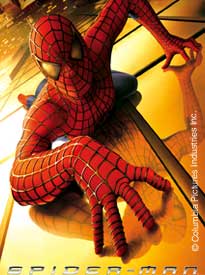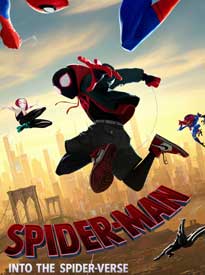
This guide contains information about events and contests related to the program, ways to access the book and film, and resources to help you research key themes of the story.
Use your login information with the public library in your area (or create an account) to access the eBook version of this title.

Unlimited copies of the eBook are available at the Jacksonville Public Library.

Unlimited copies of the eBook are available at the St. Johns County Public Library.

Unlimited copies of the eBook are available at the Clay County Public Library.

Unlimited copies of the eBook are available at the Nassau County Public Library.
Use your FSCJ login credentials to access the films through our SWANK database. Please note that these films are not licensed to be screened by an audience other than in a personal or classroom setting.


Students and employees are welcome to wear the favorite superhero costume. All costumes should adhere to the Expectations of Student Conduct found in the FSCJ Catalog. No toy or prop weapons (guns, swords, etc.) can be brought on campus. Students shall not wear costume masks until they enter Room D120 and will remove masks when they leave D120. Prizes will be awarded to the top costumes. Only students are eligible to receive prizes.
Podcast Recording Link for Hero or Horror: Spider-Man Under the Monster Studies Microscope.
Contests
For the 2024-2025 season, Beyond the Big Screen hosted an essay contest, an art contest, and a video contest related to The Amazing Spider-Man. See each section below for contest descriptions and a list of winners and prizes.
Essay Contest
Overview:
In Spider-Man, we see that Peter Parker initially disguises himself because he doesn't want people to see him fail. He designs a better costume after he succeeds in order to improve his showmanship. He continues the disguise in order to protect his family from public scrutiny.
In a 500 to 600-word essay, consider a time when you have felt like you had to hide an important aspect of yourself from others. Discuss this experience and relate it to Peter's need to keep his Spider-Man identity a secret.
Judging Criteria:
Prizes:
Video Contest
Overview:
Record a short video (fifteen seconds to one minute) creatively demonstrating your takeaway from the themes of Spider-Man. They include:
Judging:The judging committee is comprised of FSCJ faculty and staff. The committee will watch and evaluate your submission based on overall feel and creativity. Those submissions with higher production values and more creativity will receive a higher score. The submission that makes the strongest impression on the committee will be determined to be the winner. The video must remain posted for at least one year after the contest ends. Judging committee decisions are final.
Prizes
Art Contest
Overview:
This contest challenges you to visualize the themes present in The Amazing Spider-man. Create artworks that speak about heroism, identity, responsibility, family, abandonment, personal challenges, justice or any other theme present in the book. All works will be displayed at the Deerwood Campus from February 26 – March 28, 2025 (closed for Spring Break).
1st Place $300 - Abdul Ibrahimi, “Within”
2nd Place $200 - Kenneth Arcos “A New Beginning”
3rd Place $100 - Jordan Williams, “Untitled”
Honorable mention in Photography Matt Griffin “The Why Behind the Heroism”
Honorable mention in Digital imaging – James Frank, “Untitled”
Honorable mention in Drawing and Painting – Jaylene Cabera, “Untitled”
Vigilantism consists of those acts taken by individuals who are attempting to enact their own rule of law or sense of morality, in essence taking the law into their own hands. One who participates in vigilantism is known as a vigilante. The word has Latin roots in the word “vigilant,” meaning “alertly watchful especially to avoid danger,” which then permutated into “vigilante.” Vigilantism, by reflection and extension at its broadest definition, is the cause or doctrine of being a vigilante.
Ende, J., Vander. (2014). Vigilantism. The Encyclopedia of Criminology and Criminal Justice (1st ed.). Wiley. https://search.credoreference.com/articles/Qm9va0FydGljbGU6MTI4MTU4OA==?aid=20878
Zizumbo-Colunga, D. (2017). Community, Authorities, and Support for Vigilantism: Experimental Evidence. Political Behavior, 39(4), 989–1018. https://fscj-flvc.primo.exlibrisgroup.com/permalink/01FALSC_FSCJ/2a9b7j/cdi_proquest_journals_1959190894
Vigilante justice challenges the state’s monopoly over the use of violence and as such has come to the attention of a growing body of political scholars. However, still little is known about the circumstances that foster support for citizens circumventing the state to confront crime directly. I argue that citizens’ perceptions of a trusting community, on the one hand, and an untrustworthy law enforcement, on the other, jointly influence their support for this kind of behavior. I test these hypotheses using a lab-in-the-field experiment in Mexico, a case in which the expansion of vigilante organizations has posed a serious challenge to the state. I find that participants are more supportive of a vigilante action when those considering said action are described to be inserted within a trustworthy community. Further-more, I find that this effect is moderated by the described trustworthiness of law enforcement. These results contribute to our understanding of the emergence of vigilantism, and how trust in authorities can moderate the normative expression of social capital.
e Silva, K. K. (2018). Vigilantism and cooperative criminal justice: is there a place for cybersecurity vigilantes in cybercrime fighting? International Review of Law, Computers & Technology, 32(1), 21–36. https://fscj-flvc.primo.exlibrisgroup.com/permalink/01FALSC_FSCJ/2a9b7j/cdi_crossref_primary_10_1080_13600869_2018_1418142
Are cybersecurity vigilantes at odds with criminal justice? Perhaps. In general terms, vigilantism could be understood as an act of retaliation launched by private agents in response to a perceived criminal conduct and targeting alleged perpetrators of a crime. This form of unofficial crime control has flourished on the Internet, where non-State actors have enforced informal means of justice to counter criminal behavior. Recently, the actions of cybersecurity vigilantes have become a recurrent (and sometimes disruptive) element in the fight against cybercrime. In this paper, I shall argue that individuals who make use of force in response to criminal activities online could pose a serious threat to cybercrime investigations - but also that by acting upon a presumable moral duty to counter crime, cybersecurity vigilantes are turning the tables on how law enforcement is effectuated online and shaping the future of cooperative criminal justice.
Edri-Peer, O., & Cohen, N. (2023). Procedural Justice and the Unintended Role of Street-Level Bureaucrats in Prompting Citizens to Act as Vigilantes. American Review of Public Administration, 53(2), 51–63. https://fscj-flvc.primo.exlibrisgroup.com/permalink/01FALSC_FSCJ/2a9b7j/cdi_proquest_journals_2781136363
What role do the perceptions of clients about the procedural justice that street-level bureaucrats (SLBs) use when implementing policy play in prompting citizens to engage in vigilante actions? Using qualitative methods, we examine the unintended effects of SLBs’ implementation of policy on citizens’ vigilantism. We contribute to the literature by showing that procedural justice on the street level is in fact an important factor in citizens’ decisions to act as vigilantes. Our findings identified three significant factors in these decisions: the citizens’ ability to voice their complaint, the sense that they were treated respectfully and their trust that the police officers would do what they could to deal with their complaint. Furthermore, we also demonstrated that citizens and SLBs do not share the same perceptions of the role of the police as service providers, and that this gap increases citizens’ motivations to act independently.
Carlson, J. (2017). How to train a 50-year-old superhero: as action stars lead franchises into their second decades, top trainers sweat to keep actors ripped while providing knee- and back-friendly routines now that they “can’t take the physical abuse.” In The Hollywood reporter (Vol. 423, Issue 24, pp. 40-). Prometheus Global Media LLC.
Dave Crewe. (2019). Cinema science: The small wonders of “Ant-Man and the Wasp.” In Screen education (St Kilda, Vic.) (Issue 92, pp. 22–29). https://fscj-flvc.primo.exlibrisgroup.com/permalink/01FALSC_FSCJ/2a9b7j/cdi_rmit_collectionsjats_search_informit_org_doi_abs_10_3316_informit_305344204824710
Mostly eschewing the expansive scale that the genre is known for, Marvel's 'Ant-Man' and the Wasp takes the superhero genre into the miniature world of quantum particles, providing opportunities for students to be introduced to ideas such as Heisenberg's uncertainty principle and the 'Schrodinger's cat' thought experiment. The film can also foster discussions about the biology, physics, chemistry and communication strategies of insects, as Dave Crewe describes.
